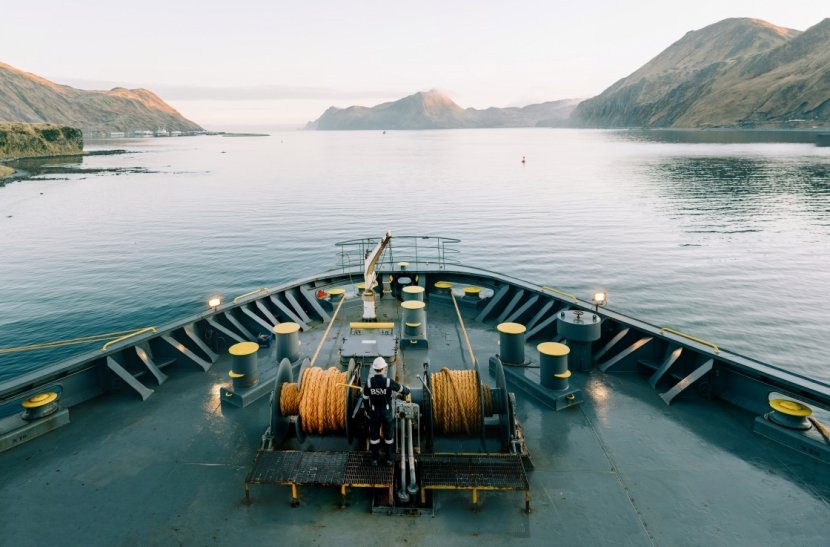Living on a ship during the Age of Sail in the 1700s and 1800s was challenging for seafarers, yet issues with food and nutrition made matters worse. Canned food was not invented until 1810 and shipboard refrigeration was only introduced in the early 1900s. Hence, foods that would keep fresh for a long time were chosen by those in charge of provisioning ships: salted beef or pork, cheese, fish, and some form of biscuits. Fresh dairy products, meats, fruits, and vegetables were seldom available to sailors. This reliance on non-perishable, low-vitamin meals combined with poor hygiene practices often resulted in more than just mealtime monotony but serious sickness.
A lot has changed since those early days of shipping. Thanks to advancements in understanding hygiene-related issues and the international regulatory framework, there has been a significant improvement in maintaining high hygiene standards onboard commercial vessels. Yet supplying food provision to the seafarers remains a logistical challenge, depending on many factors including a vessel’s route and duration of port stays. Some companies allow the self-purchase of provisions while others do it through procurement companies.
In the 90s, it was a new and challenging concept to have a third-party service provider manage the catering and housekeeping of the vessels, which had traditionally been managed in-house and onboard. There were hardly any other types of vessels other than cruise liners, rigs, and platforms that had professional backup teams ashore to help with these activities, which could be time consuming. The question arose how to help seafarers on board by reducing the workload while at the same time improve catering and housekeeping management. With this thought in mind, the idea of providing catering and housekeeping management services onboard merchant vessels managed by Bernhard Schulte Shipmanagement (BSM) was conceptualised. In 1994, the brand ‘Seachef Hospitality Services’was established in Mumbai, India. By 2004 the company had almost 100 vessels under its management and a pool of over 200 catering crew from more than 20 nationalities.
In 2015, Seachef Hospitality Services was entrusted with its first vessel from third-party clients. The company’s seafarers-centred approach enabled it to expand its services beyond catering and hospitality. Soon, the company started offering crewing services to its clients, ensuring the successful sourcing of highly skilled hospitality professionals. Furthermore, Seachef Hospitality Services invested in the training and development of the catering crew to enhance their skills and knowledge before joining onboard. The company began to offer catering crew training courses in the various aspects of their day-to-day work to ensure they were ready and skilled to meet the challenges of the demanding environment and the expectations of ship owners.
In 2023, Seachef Hospitality Services expanded its presence and established an office in Limassol, Cyprus, and an affiliate office in Indonesia. In the spring of 2024, the company opened an office in Athens, Greece, to better serve the Greek market. Today, the company has more than 100 external clients and serves a mixed fleet of more than 500 vessels in more than 750 ports worldwide. It has a pool of more than 1200 catering crew members from over 40 nationalities.
“Our success is based on being able to create a win-win situation for ship owners and seafarers,” explains Yannis Petrakis, Managing Director of Seachef Hospitality Services. “We create value by simplifying how food is purchased, handled, and consumed without compromising quality, safety, environmental and regulatory standards. Keeping a ship’s crew happy and healthy contributes directly to the efficiency of the vessel.”
Focusing on the day-to-day nutritional requirements of a diverse crew mix onboard and maintaining the overall hygiene over a variety of ships trading worldwide, the company is proud to have achieved a satisfaction rate of over 90% year on year.









